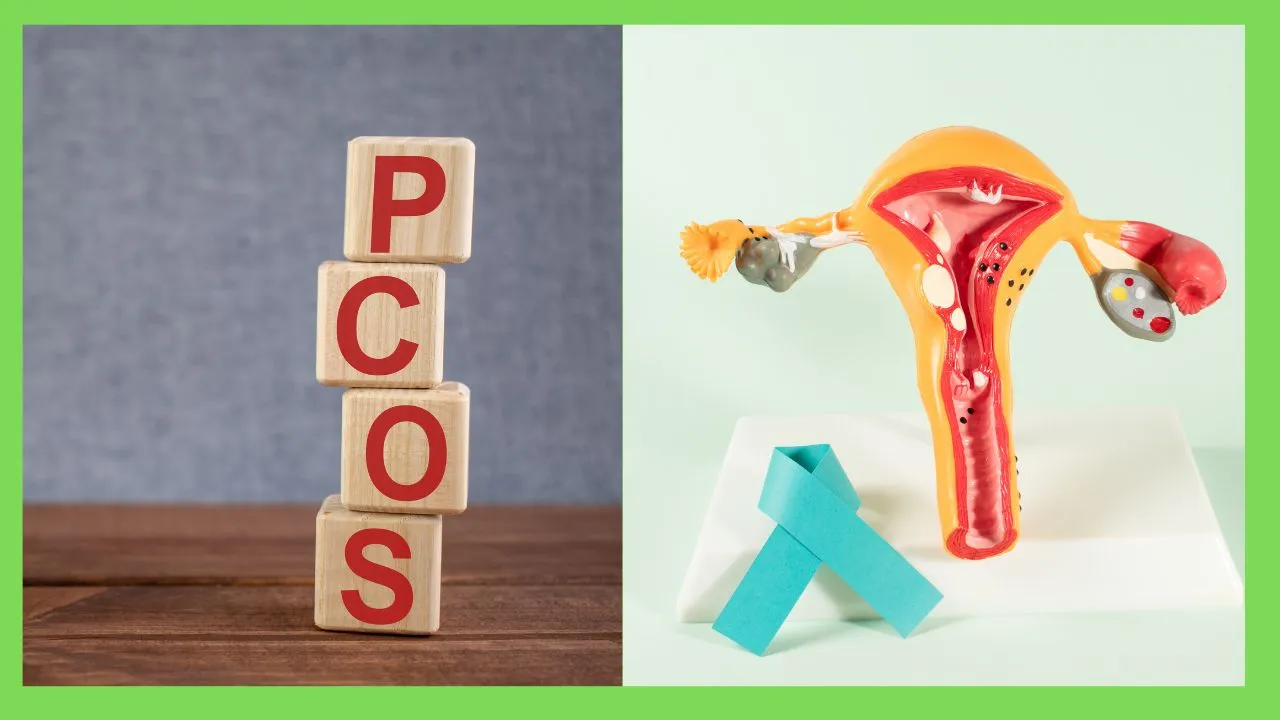Polycystic Ovary Syndrome (PCOS) is a condition that affects millions of women around the world. Its implications stretch far beyond irregular periods or acne flare-ups—it can have a profound impact on a woman’s fertility. Understanding how PCOS interacts with fertility is crucial for women trying to conceive, as well as for those simply seeking better reproductive health.
Table of Contents
What is PCOS?
PCOS is a hormonal disorder characterized by an imbalance of reproductive hormones, particularly an excess of androgens (male hormones). This imbalance can interfere with the normal development and release of eggs from the ovaries, causing them to develop into small cysts rather than maturing properly.
But it’s more than just the ovaries. PCOS affects metabolism, insulin resistance, weight, and even mental health, turning it into a complex condition that can affect various parts of the body.
The Fertility Struggle
When it comes to fertility, PCOS is one of the most common causes of ovulatory dysfunction. In simpler terms, it often prevents women from ovulating regularly or at all. Without regular ovulation, the chances of conceiving naturally are significantly reduced. Some women with PCOS experience sporadic ovulation, making it difficult to predict when they are fertile. Others may not ovulate for months at a time, leaving them in a seemingly endless cycle of uncertainty.
For many women, this realization can be heartbreaking. You may find yourself wondering why your body is struggling to do something that seems so natural. However, understanding the science behind it can help demystify the issue. PCOS disrupts the delicate hormonal dance that triggers ovulation, leading to missed or irregular cycles.
Insulin Resistance and Its Role
One of the underlying factors of PCOS that often goes unnoticed is insulin resistance. Many women with PCOS have cells that are less responsive to insulin, causing the body to produce more of this hormone to maintain blood sugar levels. This excess insulin, in turn, prompts the ovaries to produce more androgens, further disrupting the normal cycle of ovulation.
This vicious cycle of hormone imbalance not only affects fertility but also increases the risk of developing type 2 diabetes over time. For women trying to conceive, managing insulin resistance can be a key step in improving fertility.
Can You Get Pregnant with PCOS?
Absolutely, but it might take a little more effort and patience than expected. While PCOS presents challenges, it doesn’t make pregnancy impossible. Many women with PCOS go on to have healthy pregnancies. The key lies in managing the symptoms and working closely with a healthcare provider.
Treatments like lifestyle changes, weight management, and medications can often restore regular ovulation. For some, simply losing a small percentage of body weight can make a significant difference in hormone levels. In more complex cases, fertility treatments such as ovulation-stimulating medications or assisted reproductive technologies (ART) may be necessary.
Lifestyle Changes: The First Line of Defense
Before considering medications or fertility treatments, many healthcare providers recommend lifestyle changes. This is because weight loss, even as little as 5% of your body weight, can help regulate your menstrual cycle and improve the chances of ovulation. Exercise and a balanced diet that targets insulin resistance can be incredibly beneficial for women with PCOS.
Diets low in refined carbs and sugar can help manage insulin resistance, while regular physical activity improves insulin sensitivity. These lifestyle adjustments, though often challenging, can have profound effects on fertility and overall health.
Medical Interventions: When Lifestyle Isn’t Enough
When lifestyle changes aren’t enough to restore ovulation, doctors may recommend medications. One of the most common is Clomiphene Citrate (Clomid), a drug that stimulates ovulation. Metformin, typically used for diabetes, is sometimes prescribed to women with PCOS to improve insulin sensitivity and encourage regular ovulation. For women who don’t respond to oral medications, injectable hormones or in vitro fertilization (IVF) may be options.
Mental Health Matters
PCOS not only affects physical health but can also take a toll on mental well-being. The frustration of irregular periods, weight gain, and infertility can lead to feelings of inadequacy, depression, or anxiety. It’s important to recognize these emotional impacts and seek support when needed. Addressing mental health is just as important as managing the physical symptoms of PCOS, particularly for women navigating the emotional challenges of infertility.
The Bottom Line
PCOS can be a challenging condition, especially when it comes to fertility. However, understanding how it works and knowing your options can make a world of difference. Whether it’s making lifestyle changes, taking medications, or seeking emotional support, women with PCOS are not powerless in their fertility journey. While the road to conception may not be as straightforward, it is by no means closed off.
Patience, perseverance, and an informed approach can open doors to possibilities that might seem out of reach at first. With the right support and treatment, many women with PCOS can experience the joy of motherhood.
In the end, PCOS is a multifaceted condition that requires a multi-pronged approach. But with knowledge, support, and the right strategies, women with PCOS can gain control over their reproductive health and fertility.

